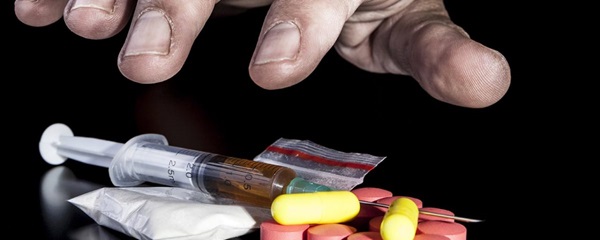
Public health experts have raised concerns over the escalating drug abuse epidemic in Nigeria, urging the media to prioritise awareness initiatives to curb the alarming increase in substance abuse among Nigerian youth.
This call to action was made during a one-day media sensitisation programme themed “Public Health Approach to Drug Control Response in Nigeria,” organised by the Federal Ministry of Health and Social Welfare in collaboration with YouthRise, a non-governmental organisation.
An advocate with YouthRise, Mr. Okiwu Henry emphasised that the rising drug abuse crisis demands a comprehensive approach that integrates awareness, education and community involvement to protect the well-being and future of Nigeria’s youth.
“The statistics are alarming, with over three million young Nigerians affected by substance abuse,” Henry stated. “This crisis devastates families and poses significant risks to national security, economic growth and social stability.”
Director of public health at the Federal Ministry of Health, Dr. Chukwuma Anyaike advocated for a public health approach to drug control. Anyaike underscored the need for a comprehensive legal framework that addresses drug abuse with a balanced, evidence-based strategy, noting that 14.4 per cent of the population, or approximately 14.3 million people, are affected.
He highlighted the health implications, particularly for vulnerable groups, including women and individuals with substance use disorders. “Focusing solely on supply reduction has resulted in inadequate access to treatment and prevention services, contributing to public health issues like higher rates of HIV, TB, and hepatitis among people who inject drugs,” he explained.
Anyaike encouraged Nigeria to align with international frameworks such as the UNGASS 2016 and the African Union Plan of Action, and to adopt the World Health Organisation’s public health approach. “This approach includes prevention of drug use, treatment and care for individuals with substance use disorders, harm reduction, access to controlled medications and ongoing monitoring and evaluation,” he said.
Chief Consultant Epidemiologist at the ministry, Dr. Ganiyu Jamiyu described drug abuse as a global issue affecting diverse sectors, including music, sports, academia and communities affected by insecurity. Jamiyu outlined a dual approach involving treating drug users as patients while prosecuting drug suppliers rigorously.
“This health-centered framework aims to reduce stigma and encourage individuals struggling with substance abuse to seek help without fear of legal consequences,” he noted. He also advocated for harsher penalties for drug suppliers, including life imprisonment as a deterrent.
He highlighted enforcement challenges, including systemic corruption that allows contraband to cross borders undetected. “Data from the 2018 survey on drug use in Nigeria provides context to the scale of the problem,” he added.
A consultant with YouthRise Nigeria, Pharm. Nonso Maduka emphasised the importance of developing a legal framework focused on health rather than punishment to better protect individuals, families and communities. Maduka noted that the workshop’s goal was to shift from punitive to health-centered approaches in drug policy.
“If we want to address this, it must be evidence-driven,” he stated, advocating for an approach that balances criminal justice with health-focused interventions such as drug demand reduction, harm reduction and access to medications.
“Understanding underlying factors, such as pain management needs and rural challenges, is essential for developing compassionate and effective responses that prioritise public health alongside enforcement,” he said.

